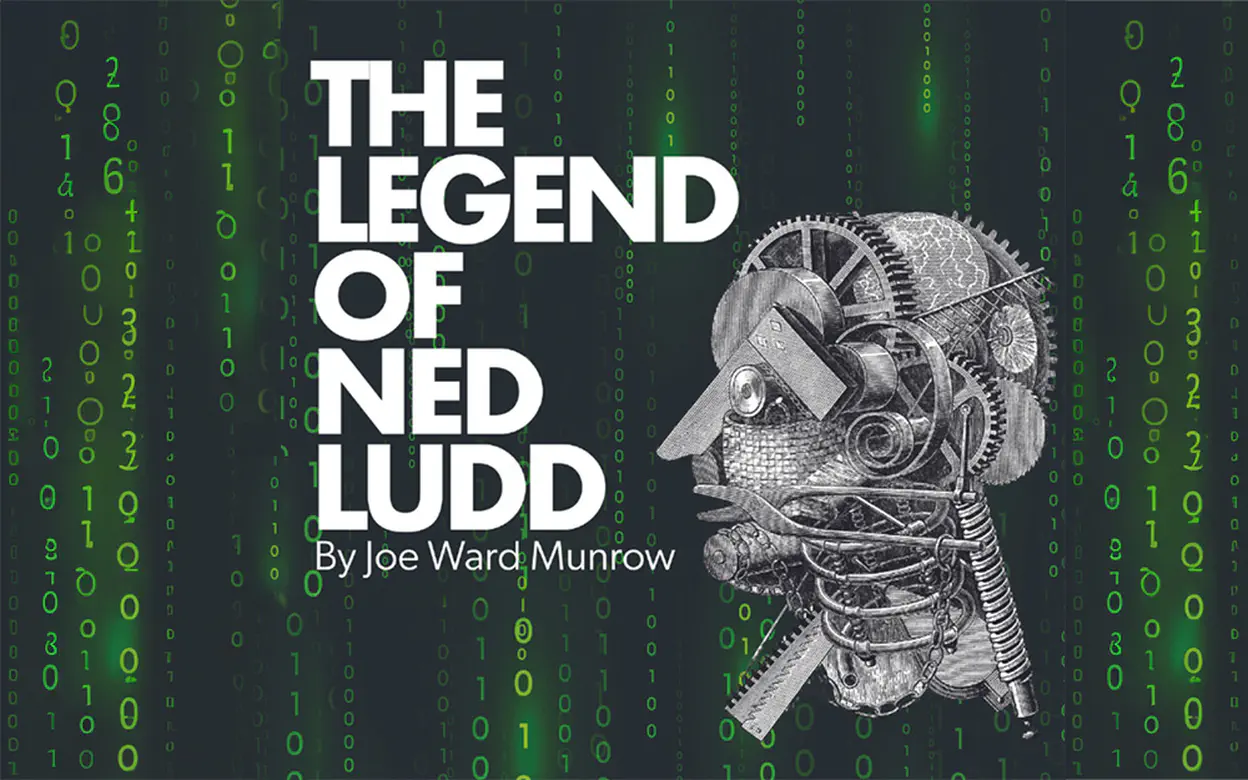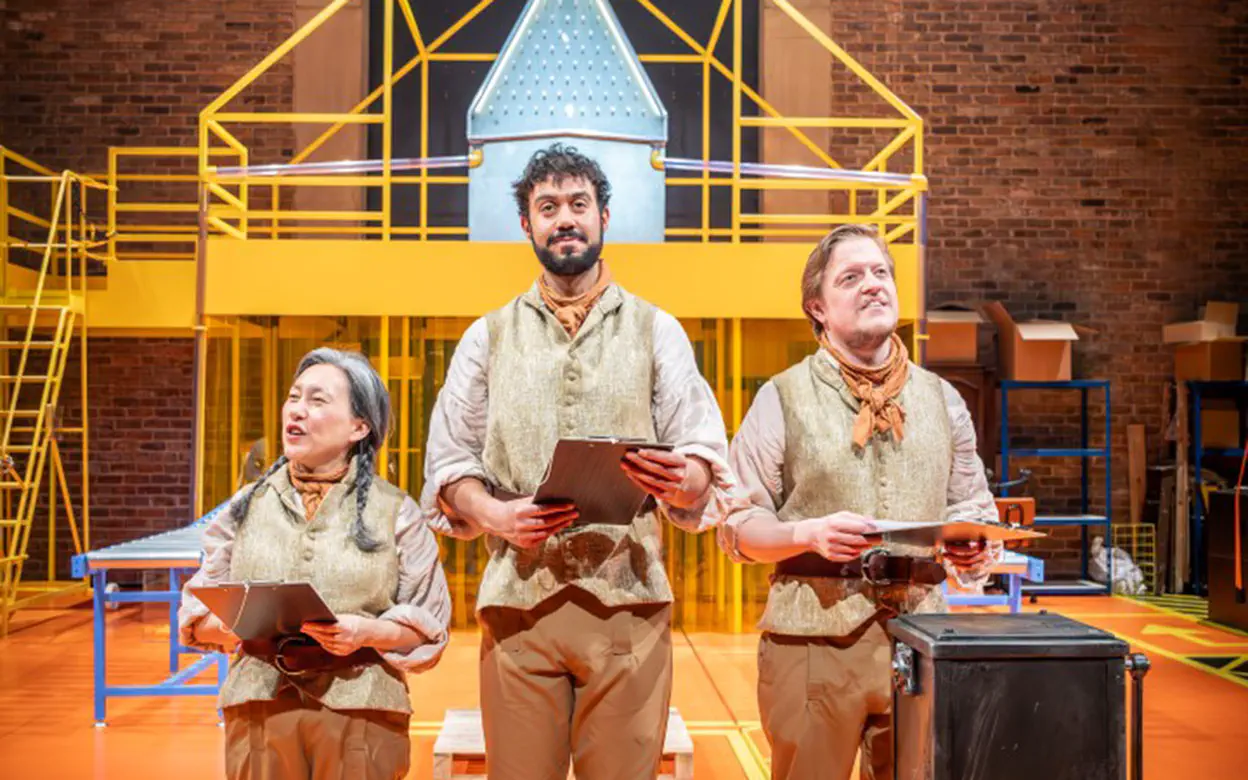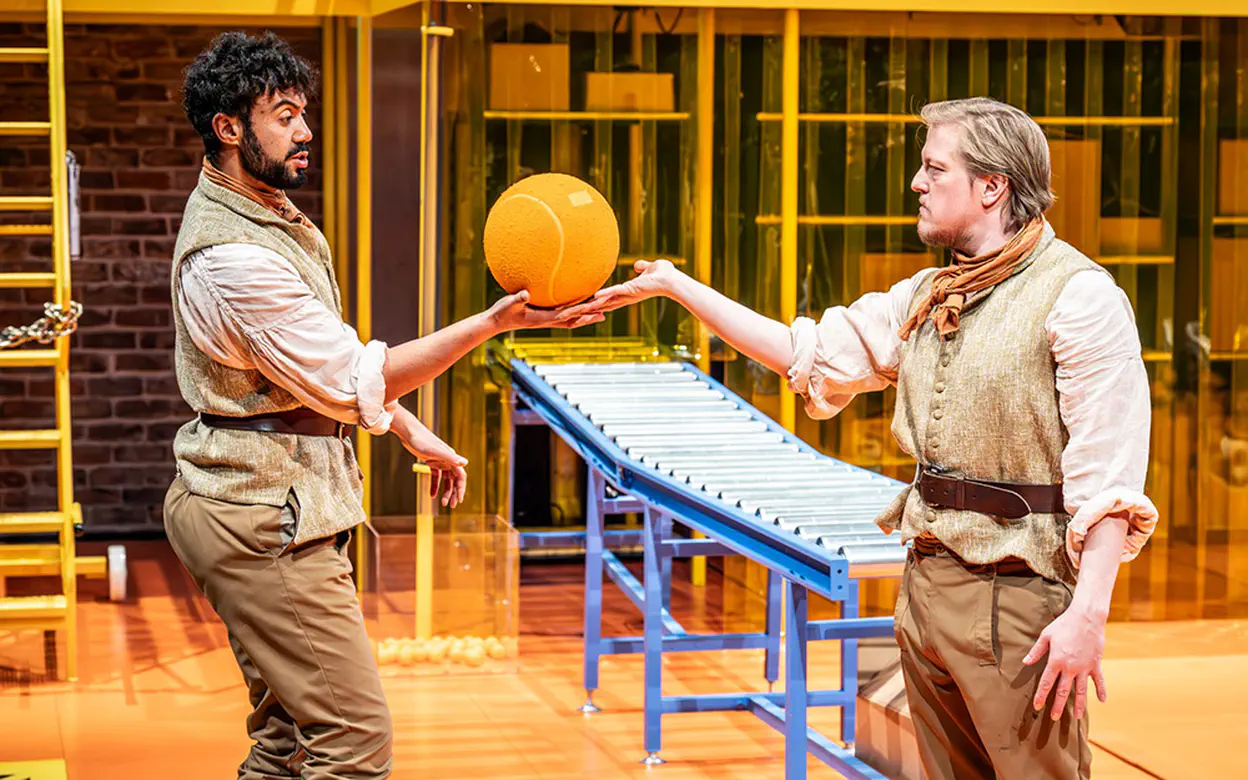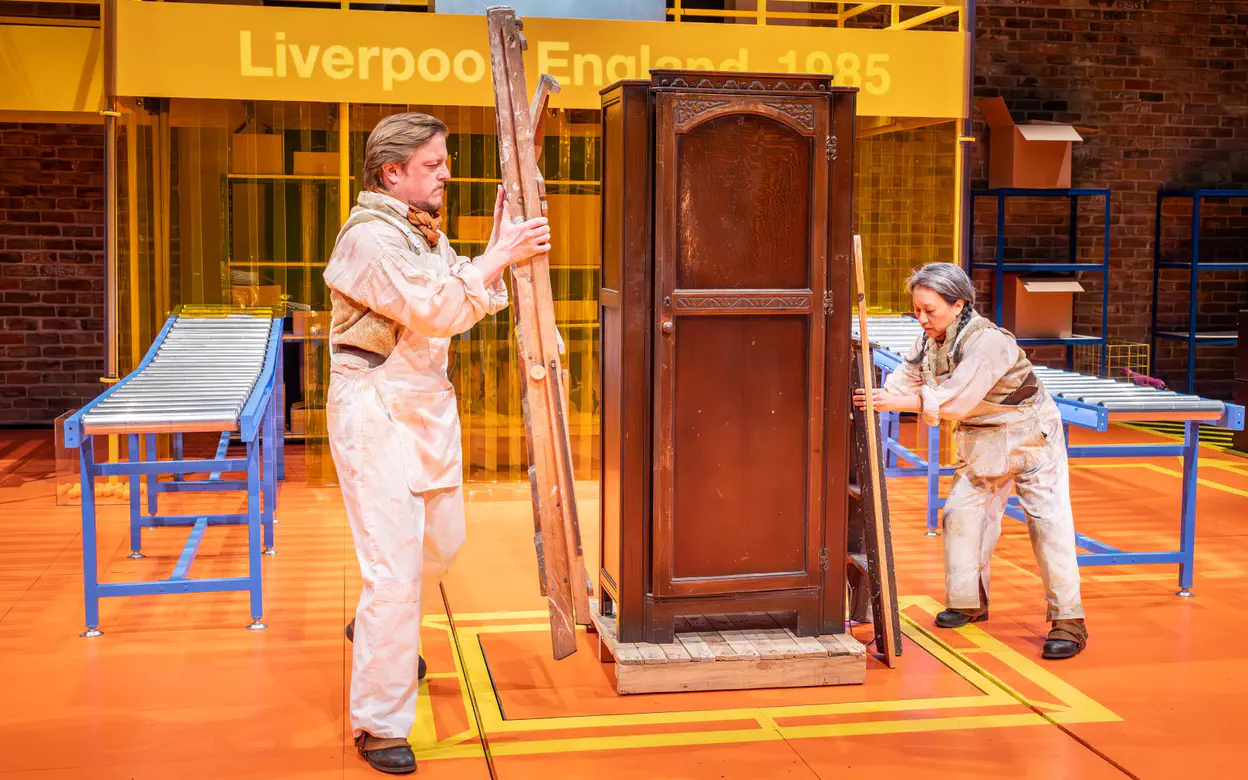The Legend of Ned Ludd
Liverpool Everyman Theatre

The concept of machines taking over the world has a long tradition within popular culture. From Terminator’s thumbs up as he descends to a fiery death, to Westworld, I Robot and 2001: A Space Odyssey, technology is often portrayed as going rouge to create a form of dystopian future. With the rise of Artificial Intelligence, Deep Fakes, and outsourcing of work to automation the apocalyptic wasteland can feel as though it’s within touching distance. The role of humans in all these scenarios is rarely touched upon. In the first of the three homegrown productions celebrating the Everyman’s 60th anniversary, The Legend of Ned Ludd aims to look more at the human elements of technology, exploring what happens when machines make decisions, and showing that the impact of technology is a timeless, worldwide question.
This is a bold production. A machine on the stage selects the scenarios that the cast of three perform, with a total of 256 different permutations written and rehearsed. By the cast’s own admission at the start, there’s almost too many for them to be asked to remember, yet they do. At the start of almost every scene, a ball is dropped from the machine into a plinko style triangular box and makes it’s way down as the machine cycles through options. A left and right option are randomly picked, then depending on which way the ball falls that is the scene performed. An incredibly inventive way of telling a range of stories, highlighting technology, and making every performance unique.

The scenes selected by the machine range from the here and now, to Liverpool in 1985, Detroit, 19th Century Paris, China, Nigeria, Mexico, and The Luddite movement in Nottingham. On the surface, the scenes aren’t linked; they are stand alone snippets of points in history. Under the surface though, they each tell the same story; the impact of capitalism, technology and globalisation on people’s working lives. The realisation that a story so prevalent in the modern media has been repeated for centuries is incredibly powerful.
The writing by Joe Ward Munrow is fantastic. Every section of dialogue is rich and realistic, with nuanced differences between the array of characters which reflected their individual backgrounds. The scenes were always conversational and idiomatic which helped create an instant connection with the characters. During a scene set in China, when one of the characters repeatedly says “I want a break”, you felt like you had watched this character for days on end, when in reality we’d been introduced to them only 3 minutes earlier.

Aside from the writing, the skill of the cast obviously has a lot to answer for the success of this play. Reuben Johnson, Menyee Lai and Shaun Mason are quite simply phenomenal. They were each believable in the different characters portrayed, charismatic, and most of all appeared to be having fun with the work. At the start of the show they introduced themselves and the concept of the play, but did so with a natural, supportive, warmth towards each other and the audience.
The most impressive performance from the cast was the final scene. This is a scene which is performed every night to close the show and is set during the Luddite movement. The confusion, anger, and pain felt by the different characters within this scene was palpable. The connection with the audience went far beyond Munrow’s impressive dialogue thanks, in part, to subtle movements juxtaposed against grand gestures. Truly spectacular acting by the cast.

One of the elements we enjoyed most during this production was the staging. The machine is ever present at the back of the stage, but is incorporated into a warehouse style picking line. As the machine decides the scene, a stage hand delivers boxes down the left or right conveyor belt. The boxes contain costumes and set pieces, with additional larger set pieces coming up from under the stage. Creative use of lighting aid the cast in knowing where to setup each prop by generating stage markers relevant to the scene.
Hazel Low’s set and costume design are simple yet incredibly effective. There is a uniform-esque main costume that the cast wear throughout, with different pieces added over the top for different characters. This uniform is very similar to that worn by the textile workers who rose up against the introduction of mechanical looms in the 19th Century, and helped provide a constant reminder that whilst some of the action might be taking place in the modern era, the issues are far from a modern creation.

We thought this was a fantastic production. In much the same way that Richard, My Richard left us questioning the manipulation of history by the victors, this show made us question the role of capitalism in history. The term Luddite is synonymous with techno-phobe, but the reality is the Luddite movement was about much more than a fear of technology.
We’re sure this will be a divisive production, and not everyone will enjoy the non-linear storytelling. For us, we enjoy theatre the most when we watch thought provoking shows, that leave us with questions and a desire to learn more. This show did that in a clever and engaging way.
The Legend of Ned Ludd is on at the Everyman until 11 May 2024, with tickets starting at £11. Tickets are available from the Everyman website.
Our tickets to this production were kindly gifted by The Liverpool Everyman & Playhouse in exchange for an honest review.
Originally posted: